John B Watson Biography, Theories and Books: The Father of Behaviorism
John B Watson, often thought to be the Father of Behaviorism, sparked a heated
debate in the field of parenting that still continues to this very day.
In this detailed research-based article you'll get:
- A short introduction that presents you with the
basic
principles in Watson's theories
- A interesting biography on Watson explaining how
Behaviorism was formed and why
- Watson's famous theories and contributions going in
detail with Behaviorism, the Stimulus-Response Theory and
'detached parenting'
- Famous articles and books by Watson
Intro: Nurture Explains It all
- Decide What You Want, Shape Your Children and Voila!
It all started with the age-old "Nature vs. Nurture" question:
- Are children a product of their environments or their genes?
- Can the way they are raised override their biological "wiring" or hereditary factors?
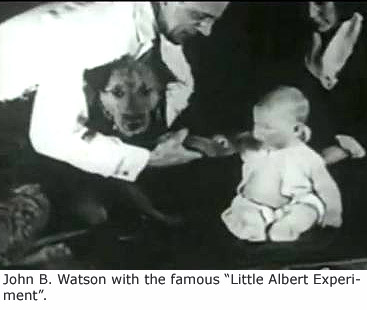 Well, Watson voted in favor of the "nurture" side,
however, many experts argue that his parenting approach is
anything BUT nurturing.
Well, Watson voted in favor of the "nurture" side,
however, many experts argue that his parenting approach is
anything BUT nurturing.
His philosophy that
children can be whatever, or whomever, their parents want
them to be, created a lot of controversy at the time it
was introduced.
Watson famously claimed that he
could take twelve infants, chosen randomly, and train
them to become "any type of specialist [he] might select"
regardless of their "talents, penchants, tendencies,
abilities, vocations and race of [their] ancestors."
John B Watson took his research on animals and tried
to translate it directly to children, stating that
children were no different than laboratory rats. They can
be trained, conditioned, and programmed to fit the mold
their parents have envisioned.
In other words,
children are completely a product of their environment.
To Get Independent Adults You Must Treat Your Children as If They Are Independent Adults
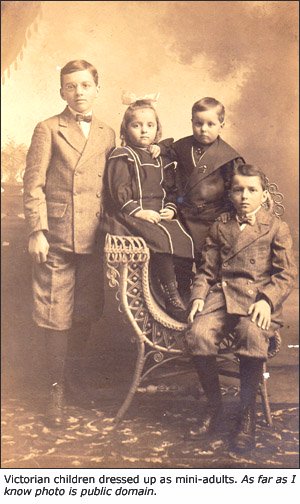 Watson
also advocated a strict,
authoritarian parenting style, with lots of rules and little affection.
Watson
also advocated a strict,
authoritarian parenting style, with lots of rules and little affection.
His premise was that too much affection would give
children unrealistic expectations of the 'real world' and
make them dependant rather than self-sufficient.
Basically, he was the opposite of
attachment parenting, actually encouraging detachment as the ideal form
of parenting.
Even though they seemed somewhat
extreme, his child-rearing practices quickly became the
accepted method of the times, and had such an influence on
parenting perspectives that many of his principles are
still alive and well today.
Like any popular
parenting method, Watson received a lot of criticism. But,
his supporters were as strong as his adversaries.
And even though his career was short, his ideas had a
powerful impact on the field of parenting.
Here is
a biography on his life:
The John B Watson Biography
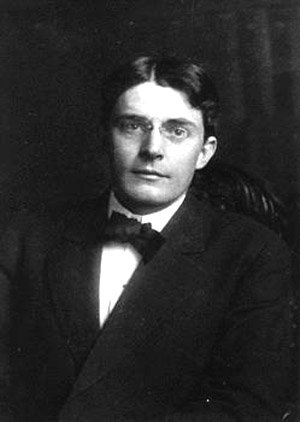 John B Watson was born January 9, 1878 in
Greenville, South Carolina.
John B Watson was born January 9, 1878 in
Greenville, South Carolina.
His father abused
alcohol and left the family when Watson was only 12.
As a result, Watson became very rebellious against his
mother and engaged in what he would classify as 'deviant'
behavior for a period of time.
At age 16, he
entered Fruman University and graduated five years later
with a Master's Degree.
Watson Enters the Field of Psychology
He then began studying Psychology at the
University of Chicago and earned his Ph.D. in 1903.
Going from Animal Behavior to Children Behavior
Watson worked for a short period of time as an
instructor at the University of Chicago before accepting a
position at John Hopkins University in 1908. It was here
that he began running experiments on animals to study
behavior control.
Eventually, he expanded his
research to study the behavior of young children.
Watson 'Gives Birth' to Behaviorism
In 1913, Watson
delivered a lecture entitled 'Psychology as the
Behaviorist Views It', which later became his "defining
moment".
The Quest to Make 'Subjective' Psychology More 'Objective' and Scientific
It was this speech
that introduced the idea of removing consciousness and
abstract concepts from psychology and creating a more
"scientific" branch called Behaviorism.
Watson
presented some interesting views that he believed would
bring credibility to the field of Psychology.
His
revolutionary ideas, skyrocketed his fame and had many
people re-evaluating their long held beliefs.
His
popularity and recognition among his colleagues helped him
become President of the American Psychological Association
in 1915.
In 1919, he published his now famous
work, 'Psychology From the Standpoint of a Behaviorist',
which reiterated many of the same points that were
included in his 1913 lecture.
Going Mainstream Applying Behaviorism to Parenting
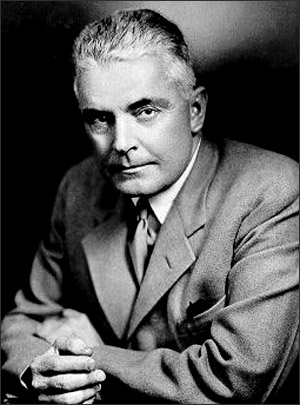 Although he was
forced to resign his position at John Hopkins in 1920 due
to a scandal, he continued to publish work in the areas of
parenting and psychology.
Although he was
forced to resign his position at John Hopkins in 1920 due
to a scandal, he continued to publish work in the areas of
parenting and psychology.
In 1925, he wrote
'Behaviorism', a book geared toward the average reader.
And, in 1928, he published 'Psychological Care of
Infant and Child', which focused on how to apply
Behaviorism to parenting.
Watson Goes Corporate: Introduces Behaviorism to the Advertising World
After leaving his teaching post, John B Watson began a
career in advertising, claiming that he could use his
behaviorist principles to his advantage in this field.
He was quite successful, eventually becoming the vice
president of the company.
Watson Dies Lonely and
Burns His Unpublished Work
... Did He Regret His Theories?
Despite his controversial beliefs, Watson was given
the APA award in 1957 for his contributions to the field
of Psychology.
Unfortunately, in the end, Watson
paid a high price for his Behaviorist parenting approach.
John B Watson died a lonely recluse on his farm in
Connecticut on September 25, 1958.
Some people say
he regretted writing about parenting because he "did not
know enough" about the subject.
And, the fact that
he burned all of his unpublished work before he died may
indicate that, in the end, he was questioning his own
theories.
Watson's Academic Legacy Was not Reflected in His Personal Life: Actual Parenting Was not His Cup of Tea
Watson may have been considered
an expert in parenting, but he did not have a good
relationship with his own children.
He had two
children from his first marriage and two from his second
marriage, all of whom were raised with a strict
authoritarian parenting style.
One of his
sons committed suicide, and his daughter also made several
attempts to take her own life.
It is reported that
another son was aimless, lacking direction or purpose, and
died from stomach issues at a young age.
Many
people in the field of parenting believe that these
problems stemmed from Watson's detached and cold treatment
of his children.
Although the "extremes"
associated with Behaviorism began dying out in the 1950s,
many of the principles have found their way into modern
parenting theories.
Whether it is the behaviorist
inspired views of parenting experts such as Richard Ferber
and James Dobson, or the more subtle approach of Fitzhugh
Dodson, the
idea that parents need to control their
children is still alive and well in the Western
world.
Here is a John B Watson biography on video:
Watson's Famous Theories and Contributions
Although Watson's
career was short-lived, his contributions to the field of
psychology and parenting have survived for nearly a
century.
In fact, remnants of many of his ideas
can still be seen in parenting books, education, and
behavior modification techniques.
His major
contributions include:
- Behaviorism
- Expansion of the Stimulus-Response Theory
- Detached Parenting
Behaviorism: The Factual Evidenced Based Version of Psychology
John B Watson thought that
the field of psychology was too subjective, and therefore,
did not earn the same level of respect as other sciences.
His goal was to create a new school of psychology
that was based on empirical evidence and actual facts -
and he called this Behaviorism.
Although much of
his theory was rooted in the research and findings of
Ivan Pavlov
(Conditioned Reflex Theory), John B Watson is generally
known as the Father of Behaviorism because he applied his
ideas to human subjects and recommended that parents use
these principles with their children.
Up to this
point in time, most of the research in this field had been
limited to animal studies.
Emotions and other Subjective 'Stuff' that Cannot be Measured Is not Science ... Let's Throw It all out the Window
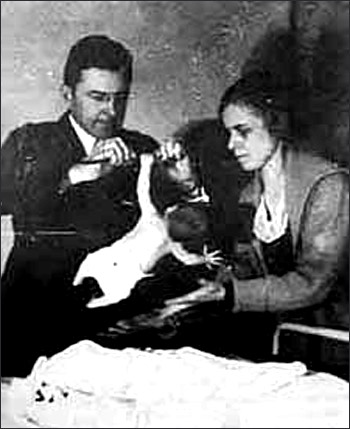 Basically, he said that Psychology - or at least the
Behaviorism branch - should be the science of observable
behavior and that states of consciousness, emotions,
personal perceptions, or introspection should be
disregarded.
Basically, he said that Psychology - or at least the
Behaviorism branch - should be the science of observable
behavior and that states of consciousness, emotions,
personal perceptions, or introspection should be
disregarded.
These things were too difficult to
verify and, therefore, could not be considered reliable
evidence.
Watson's version of Behaviorism stated
that:
- Psychology should be objective, not
subjective
- Theories should be based on observable
behavior
- Behavior can be predicted and controlled -
any individual can be molded to fit a desired result
- Since consciousness is not a factor, there is no
distinction between animals and people - what works on
animals will also work on human subjects.
- Instinct,
emotions, and hereditary factors (Nature) play no role in
child development, but everyone is a product of their
environment (Nurture).
Watson's Rejection of Emotional Validity Unleashed Academic Fury
Many
psychologists took offence to Watson's theory.
They argued that what Watson claimed was "unscientific"
was actually the very thing that set their field apart
from others.
People are not laboratory rats, and
ignoring the mind, emotions, or consciences of individuals
is an incomplete approach to understanding human
functioning and development.
Academics Fight Back Pinpointing Holes in Watson's Theory
Although many studies seemed to prove Watson's findings, there are those who argued that there were too many "holes" in theory:
- Why do two children raised in the same environment
have completely different personalities?
- Why do some
criminals come from homes with law-abiding parents who
have a great respect for authority?
- And, if physical and mental illness is merely a result of conditioning, why do so many children raised according to Behaviorist principles struggle with stress and depression - including Watson's own children?
Through the years, some of
the extreme ideas have been toned down a little, but more
softly modified version of Behaviorism leftovers can still
be seen in the use of rewards and incentives, punishments
and disciplines, earned approval, and parenting approaches
that encourage strict rules or rigid expectations.
Stimulus-Response Theory: Controlling and Molding Desired Behavior Patterns
Stimulus-Response Theory
was first introduced by Pavlov, however, his research was
limited to animals, specifically dogs.
John B
Watson is often associated with stimulus-response theory
because he expanded on this idea and applied the concept
to human beings.
Remember, he didn't see a
significant difference between animals and people so he
assumed that what worked for a rat would also work for a
child.
The basic idea is that a certain stimulus
will cause a specific response. When this
stimulus-response pattern is repeated several times,
eventually a habit - or a behavior - will develop.
According to Watson,
- "The response that has most
recently occurred after a particular stimulus is the
response most likely to be associated with that stimulus."
And, "the more frequently a stimulus and response occur in
association with each other, the stronger that habit will
become."
The Famous 'Little Albert Experiment'
John B Watson set out to prove this theory with a very
famous study known as the Little Albert Experiment.
Albert was an 11-month old baby, and Watson claimed
that he could condition a child this young to fear rats.
- Initially, baby Albert displayed no fear when
shown a white rat.
- But then, Watson paired the rat
with a loud banging noise that made the child cry.
- After repeatedly associating the rat with the frightening
noise, Albert began to fear the rat, even when the noise
was not present.
- In fact, Watson was able to
condition this fear so strongly that Albert was scared of
anything that even resembled the white rat.
Bunnies, beards, and even fur coats would cause the baby to cry and crawl away.
Here is a little video featuring John B Watson performing the Little Albert Experiment:
If You Repeat the Stimulus-Response Technique Long Enough, You Get What You Want ... Or Do You?
John B Watson
stated that all behavior could be controlled by recreating
this same stimulus-response environment. "Life's most
complicated acts are but combinations of these simple
stimulus-response patterns of behavior."
Every
stimulus causes a response, and every response can be
traced back to a particular stimulus. No part of human
development is hereditary or instinctual.
Therefore, according to Watson, if you don't like a
particular behavior that you see in your children, find
out what stimulus is causing it and either eliminate that
stimulus or change it to produce a more desirable
behavior.
By giving the right stimuli, you can control and
condition children to be whatever you want them to be.
Well, this concept worked with Pavlov's dogs and one
child (yes, Albert was the only subject in the study), but
how well the theory held up in the real world is still
being debated.
Detached Parenting: Signs of Affection Corrupts and Should Be Avoided
The best
way to describe Watson's approach to parenting is
detached.
He says that parents should:
- "treat [children] as though they were young adults. Dress them, bathe them with care and circumspection. Let your behavior always be objective and kindly firm. Never hug and kiss them, never let them sit on your lap. If you must, kiss them once on the forehead when they say goodnight. Shake hands with them in the morning. Give them a pat on the head if they have made an extraordinary good job of a difficult task" (From Psychological Care of Infant and Child).
While these ideas may seem shocking to the
Alfie Kohn and
Dr. Sears supporters of today, Watson's theory became the accepted way of
parenting.
The Effect: Mothers' Abandoned Their Natural Instincts to Follow the Voice of Authority
Whether mothers agreed with his ideals or not, many felt
that they needed to listen to the experts.
And, Watson
encouraged this idea by saying, "Parents today are
incompetent. Most of them should be indicted for
psychological murder."
That may not seem like a
positive way to begin the parenting adventure, but for
parents who wanted to raise their children to be
independent, self-sufficient individuals, Watson seemed to
provide the perfect framework.
Watson's "detached"
theory of parenting was based on a few key principles:
- Attachment is to be avoided. Affection will cause children to become
dependent, emotionally unstable, and insecure.
- Children's
needs, desires, and feelings are irrelevant. In fact, since true
Behaviorism does not acknowledge states of consciousness, these
things do not even exist.
- Children should be treated as young
adults and maturity is expected at all ages.
- Children should be
quiet and left alone as much as possible. Too much attention will "spoil"
children, which is dangerous to their development.
- Children are
completely a product of their environment. Individuality,
personality, and free-will have no place.
- Parents should
control the environment and behavior of their children by using
Stimulus-Response practices.
- Strict schedules should be
followed. Children should be awakened at a certain time, fed at a
certain time, and put on the potty at a certain time (and kept there
until they produce). Their play time should be structured and their
social life should be closely monitored so as not to encourage
deviant behavior.
Articles and Books by John B Watson
John B. Watson wrote many books and articles outlining his
theories and beliefs on Behaviorism, parenting, and psychology.
Although several of his publications were very scientific, he
did write a couple of books geared toward the average reader that
are helpful in understanding the history, principles, and practical
application of the behaviorist approach to parenting.
Psychological Care of Infant and Child
Psychological Care of
Infant and Child was written like a handbook, telling parents how to
apply Behaviorism to child-rearing practices.
Although many
people agree that some of the ideas are extreme, the reader should
keep in mind that this book was written in 1928, a time when family
roles and societal expectations were much different than they are
today.
The most common initial response today would probably
be that Watson's techniques were much too harsh - having you shake
your head in disbelief.
In Disguise Watson's Ideas Are Still Thriving Today
However, it can also be a great eye-opener
because if you take the overall message of controlling your kids -
you may ask yourself "Am I actually in some way shake or form using
versions of Watson's ideas?"
I am probably going to provoke
many people but taken to the extreme, if you are using controlling
means (rewards, punishment, time out ... manipulation basically)
then yes, you may say that these methods have their roots in
Behaviorism.
Many people today have taken the basic
principles of Behaviorism and toned them down, or adapted them to
fit the current times ... but they are controlling methods none the
less.
When Watson says not to hug or kiss your children,
most parents would say, "that's crazy!"
But, his point was
that if children are given too much affection they may not learn to
"stand on their own two feet" or develop independence and strong
problem solving skills.
And, of course, every parent wants
their children to be strong, healthy, well-adjusted individuals.
Take the 1928 language out of Behaviorism and replace it with 21st
century wording ("If you sleep with your baby, your children
will never learn to fall asleep by themselves"), and suddenly
Watson's ideas are once again being praised.
They are
softened, yes. But the overall idea and message is still clear!
So whether you agree with it or not, this theory is still very
evident today!
Some of the principles discussed in
Psychological Care of Infant and Child include:
- Children
should be treated as young adults
- Coddling and affection should
be avoided
- Detachment is preferred over attachment
- Strict
schedules should be followed
- Parents should control the
environment in which their children are raised
- Children should
be conditioned to live up to parents expectations
- The development of independence, maturity, and problem solving skills is encouraged
Watson may have pushed things a little too far
when he made the statement "not more babies but better brought up
babies" and suggested that people should just stop having children
until a more efficient or effective method of child-rearing is
proven.
Even though it may be viewed as harsh in some areas,
this is a good book in helping parents understand the authoritarian
style of parenting in its most extreme state and recognizing
Behaviorist principles at work in other parenting theories.
Behaviorism
Behaviorism is the book that changed people's
views of human behavior.
In Behaviorism, John B Watson takes
the principles that he had previously introduced to the academic
world and presents them in a way intended for the average reader.
Although it is not about parenting specifically, it does
outline Behaviorism and helps the reader see how this theory can
impact the family.
In fact, Behaviorism is the book that
first introduced the now famous "give me a dozen children" quote and
told parents that they could control their children's behavior.
John B Watson covers a wide variety of topics including:
- What is Behaviorism?
- Scientific methods to studying human
behavior
- The human body and physiological foundations for
behavior
- Do instincts exist?
- Emotions
- Habits
- Personality
- Talking and Thinking
- Separation of behavior
from the mind
- Punishments, rewards, and conditioning
Psychology from the Standpoint of a Behaviorist
Again,
Psychology from the Standpoint of a Behaviorist is not about
parenting specifically, but it is very helpful in understanding the
basis for many of Watson's child-rearing ideas.
In fact,
there are many who claim that this was his most important work since,
together with the 1913 lecture, it introduced the world to the
concept of Behaviorism.
Watson discusses the limitations of
traditional psychology and describes his vision to see this field
recognized as a natural science.
It includes all the basic
principles of Behaviorism and focuses on many aspects of psychology
as seen from a behaviorist point of view:
- Using the
stimulus-response model to predict and control behavior
- Categories of behavior: explicit and implicit, hereditary and
acquired
- Physiological foundations of stimulus and control -
responses and receptors
- Basis for emotions, thinking,
temperament, and personality
- Denial of instincts, consciousness,
inherited abilities
Other Academic Sources on Watson
If you need more information on John Watson's life, you may consider on of the following resources:
-
Detailed Lecture Notes on Watson
-
John Broadus Watson and Psychology from the Standpoint of a Behaviorist
Your Positive Parenting Ally,
Birgitte

Want to stay in touch and get the latest news?
Sign up
for my free newsletter
Parent Coaching
- For Inner Peace, Clarity and a Deeper Connection to Your Child
 Being a parent can feel like a double-edged sword. Life with kids may feel like the greatest gift you have ever received, while at the same being hugely challenging, often leaving you confused, stressed and overwhelmed.
Being a parent can feel like a double-edged sword. Life with kids may feel like the greatest gift you have ever received, while at the same being hugely challenging, often leaving you confused, stressed and overwhelmed.
When we feel like this, we've lost touch with ourselves. We can't hear our own inner voice, and it's difficult to know what is 'right' for us and how to act.
I offer in-depth parent coaching to help you regain your balance and get back in touch with yourself. From a place of inner peace and clarity, your will find your own answers which will help you reconnect with your child from a place of unconditional love and acceptance.
Read more about my parent coaching here.
Where Would You Like to Go Next?
Famous Parenting Experts Overview
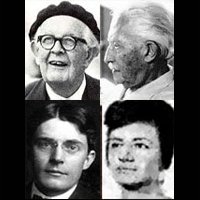 Famous Parenting Experts and Their Parenting Styles Theories: Humanism vs. Behaviorism. |
Parenting Experts Related to BEHAVIORIST Parenting Styles (Founders, Refiners, Supporters or 'Coiners')
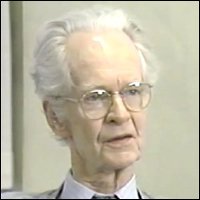 B. F. Skinner Biography, Theories and Books: Father of Radical Behavorism. |
 Amy Chua Biography and Theories: Tiger Mother's 9 Parenting Principles. |
Parenting Experts Related to HUMANISTIC Parenting Styles (Founders, Refiners, Supporters or 'Coiners')
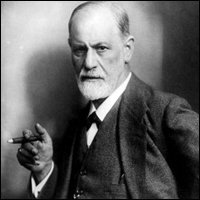 Sigmund Freud the Controversial Pioneer of Psychology: The Famous Psychosexual Stages of Child Development. |
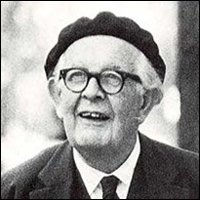 Jean Piaget Biography, Theories and Books: The Earliest Torch Bearer of Humanism. |
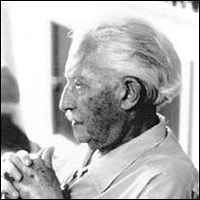 Erik Erikson Biography and Theories: The 8 Developmental Stages, Identity Crisis and Ego Identity. |
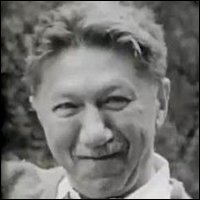 Abraham Maslow Biography: The Father of Humanistic Psychology and Self Actualization Theory. |
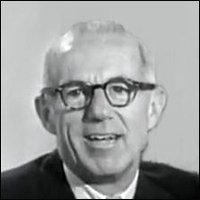 Dr. Benjamin Spock Biography, Theories and Books: The Controversial Forefather of Intuitive Parenting. |
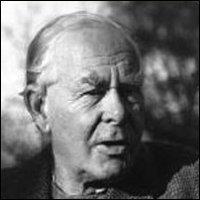 A Biography of John Bowlby: The Father of Attachment Theory. |
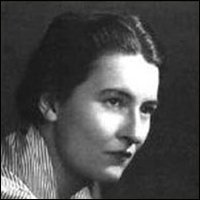 An Intriguing Mary Ainsworth Biography: The Refiner of Attachment Theory. |
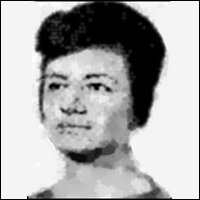 Diana Baumrind Spot-on: Biography, 3 Parenting Styles and Criticism (Spanking). |
 Carl Rogers Biography, Theories and Books: The Founder of Humanistic Psychology. |
 Alfie Kohn Biography, Theories and Books: The Father of Unconditional Parenting. |
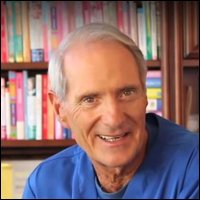 Deep Insights into the Essence of Dr Sears' Attachment Parenting - Along with a Fascinating Historical View on the Slow Rising Consciousness of Attachment Parenting. |
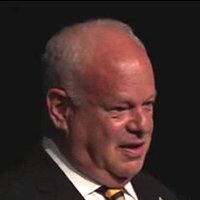 Martin Seligman: The Critic of Traditional Psychology and Father of Positive Psychology. |
Back to the top of this page about John B Watson Biography, Theories and Books: The Father of Behaviorism
Go to the Positive Parenting Ally Homepage







